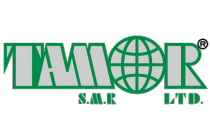Israel's Sheba Medical Center, Tel HaShomer Publishes Two Studies that Provide New Hope for Children with Autism Spectrum Disorder
RAMAT GAN, Israel, July 8, 2019 /PRNewswire-PRWeb/ -- Doctors at Israel's Sheba Medical Center, Tel HaShomer are bringing new hope to children diagnosed with Autism Spectrum Disorder.
Dr. Lidia Gabis, a pediatric neurologist and researcher at Sheba Medical Center, discovered that a combination of the drug donepezil (commonly used to treat Alzheimer's disease and known under the brand name Aricept) and choline (a food additive that Gabis hypothesized could enhance the drug) improved receptive language skills in children ages 5 through 10 while resulting in minor improvement in adolescents.
Receptive language is the ability to understand words and language, something that is often difficult for children with autism. In this study, significant improvement was found in receptive language skills even six months after the end of treatment as compared to placebos.
"We were so thrilled with the results in the younger children. This is a huge breakthrough showing that core symptoms of autism can be improved with a novel pharmacological combination. It is so promising, and we look forward to having other researchers replicate these findings with a larger sample size," said Dr. Lidia Gabis, Director of Sheba's Weinberg Child Development Center at the Edmond and Lily Safra Children's Hospital. "We are making great strides in treating autism-related disorders and bringing hope to families struggling with this disability across the globe."
More than a decade ago, Dr. Gabis created the Keshet Center at Sheba, one of the largest autism centers in the world. It is a cutting-edge facility dedicated to early diagnosis, intervention and research of autism-related disorders with an individualized, family-centered approach.
Sixty children and adolescents with Autism Spectrum Disorder took part in the nine-month study at the Keshet Center. The younger group showed significant improvements. Adolescents showed minor improvements with a side effect of irritability. Minor gastrointestinal issues were also reported in both groups.
In another groundbreaking study at Sheba Medical Center, it was shown that medical clowns participating in group therapy had a very beneficial effect on young children (ages 2 to 6) who were diagnosed with autism.
Twenty-four children with Autism Spectrum Disorder, enrolled in Sheba's special education intensive program, were examined before and after clown intervention. There was significant increase in words used by the children, play reciprocity and more social smiles.
"These preliminary results indicate that medical clowning may be beneficial for young children with Autism Spectrum Disorder, since it promotes communication and social reciprocity in a fun and lively interventional setting," said Dr. Lidia Gabis.
To learn more about these two advances in autism research or to request interviews with Dr. Lidia Gabis, contact Jodie Singer at 202-597-5477 or Jodie(at)redbanyan(dot)com
About Sheba Medical Center, Tel HaShomer
Born together with Israel in 1948, Sheba Medical Center, Tel HaShomer is the largest and most comprehensive medical center in the Middle East. Sheba is the only medical center in Israel that combines an acute care hospital and a rehabilitation hospital on one campus, and it is at the forefront of medical treatments, patient care, research and education. As a university teaching hospital affiliated with the Sackler School of Medicine at Tel-Aviv University, it welcomes people from all over the world indiscriminately. In 2019, Newsweek magazine named Sheba one of the top ten hospitals in the world. To learn more, visit: eng.sheba.co.il.
SOURCE Sheba Medical Center, Tel HaShomer




